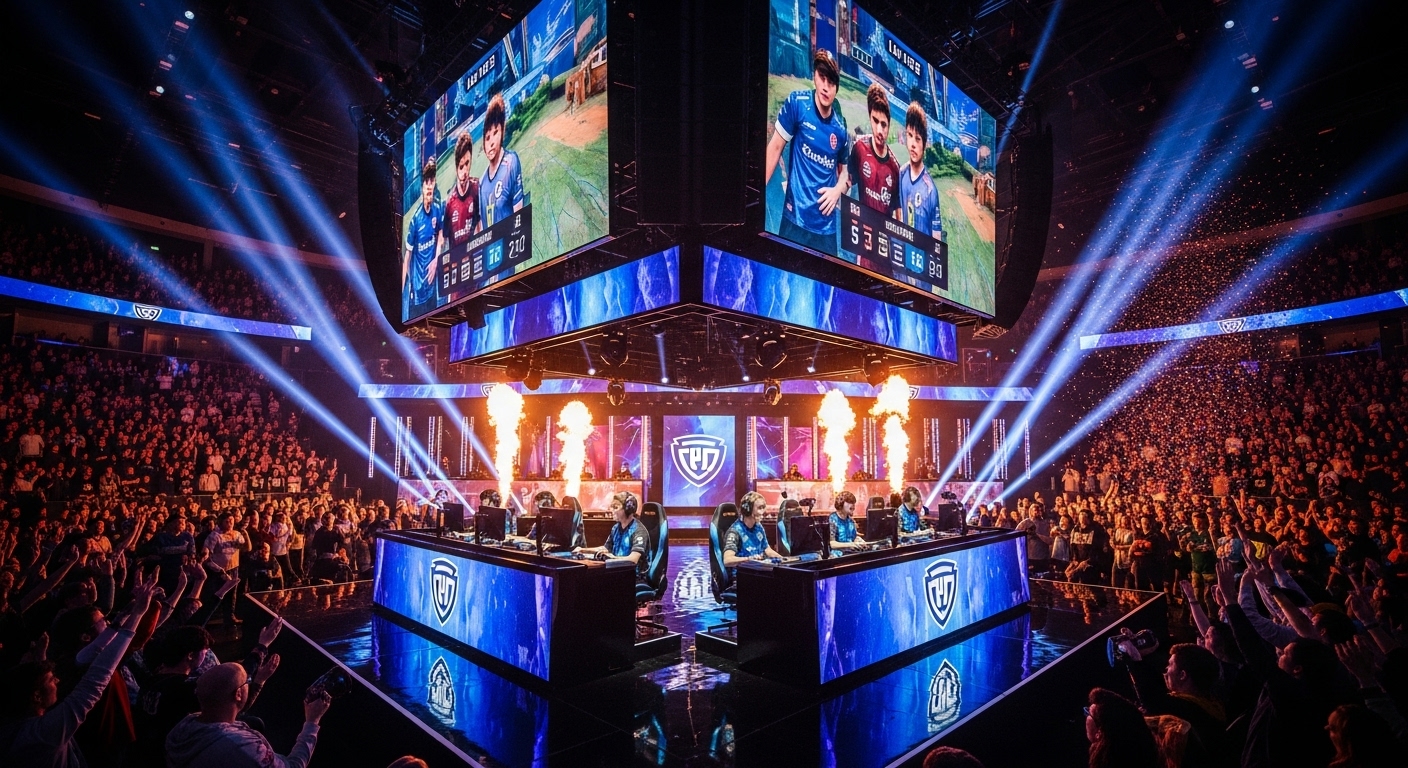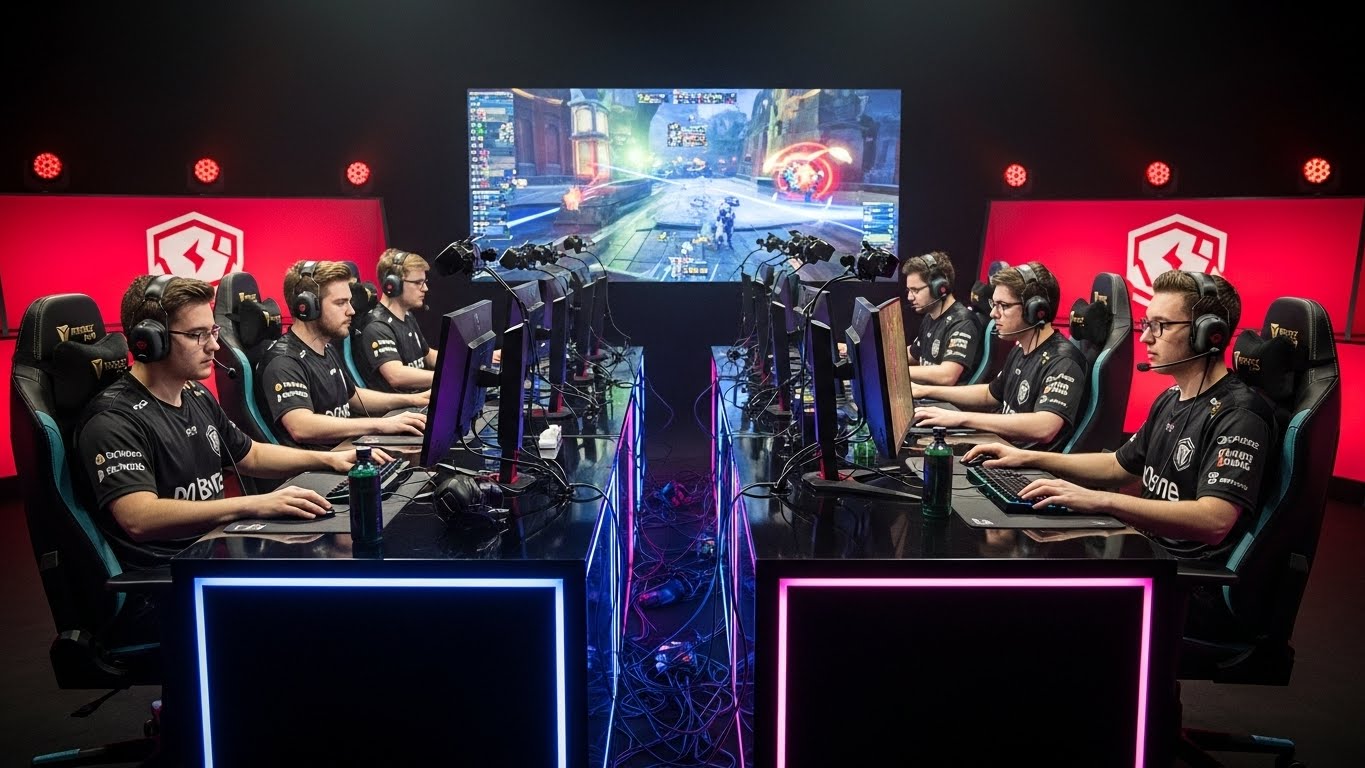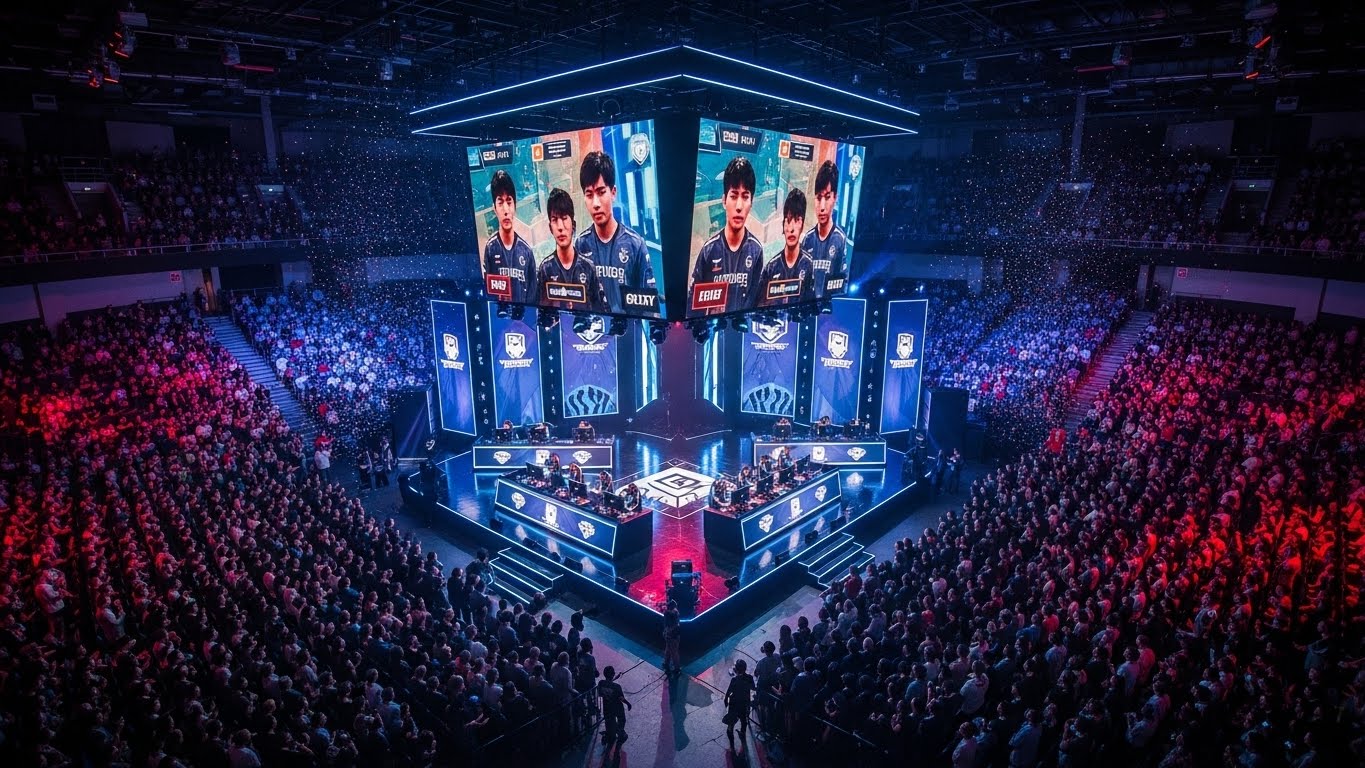Introduction: The Emergence of Esports
Esports, or competitive gaming, has transformed the landscape of entertainment and sports in the 21st century. What began as casual competition among friends has evolved into a professional industry with millions of players, spectators, and global tournaments. Esports encompasses organized, multiplayer video game competitions, often supported by professional teams, sponsors, and broadcasting platforms. Its growth highlights the fusion of technology, entertainment, and competition, making it a significant cultural and economic force worldwide.
The Evolution of Competitive Gaming
The roots of esports trace back to the early days of video gaming, when players competed in arcade games and small local tournaments. Games like Pac-Man, Street Fighter, and StarCraft set the foundation for competitive play, showcasing both skill and strategy. The late 1990s and early 2000s marked the rise of online multiplayer games, which enabled global competitions and fostered a community of competitive players. The development of high-speed internet, streaming platforms, and professional gaming leagues propelled esports into the mainstream. Today, esports includes a wide array of genres, from first-person shooters to real-time strategy games, each with its own global following and professional infrastructure.
Popular Esports Genres and Games
Esports is diverse, featuring various genres that appeal to different audiences. First-person shooters like Counter-Strike and Call of Duty test reflexes, accuracy, and strategic teamwork. Multiplayer online battle arenas, or MOBAs, such as League of Legends and Dota 2, emphasize coordination, strategy, and adaptability. Fighting games like Street Fighter and Super Smash Bros. focus on timing, precision, and competitive skill. Sports simulations like FIFA and NBA 2K replicate real-world competitions, while battle royale games like Fortnite combine survival skills with strategy. Each genre offers unique challenges and entertainment value, contributing to the global appeal of esports.
The Role of Professional Players and Teams
Professional esports players are the face of the industry. These athletes train rigorously, often dedicating hours each day to improving reflexes, strategy, and teamwork. Teams operate much like traditional sports organizations, with coaches, analysts, and support staff contributing to performance. Sponsorships, streaming revenue, and tournament winnings provide income, while branding and social media presence enhance visibility. The professionalization of esports has elevated competitive gaming to a legitimate career path, inspiring aspiring players worldwide to pursue their passion with dedication and discipline.
Global Tournaments and Competitive Leagues
Tournaments and leagues are central to esports, creating structured competition and global recognition. Events like The International for Dota 2, the League of Legends World Championship, and EVO for fighting games attract millions of viewers and feature multi-million-dollar prize pools. Regional leagues, such as the LCS and LEC for League of Legends, provide consistent competition and allow teams to qualify for international events. These tournaments are more than just games—they are spectacles with production value, commentary, live audiences, and intense media coverage, rivaling traditional sports in scale and excitement.
The Influence of Streaming and Digital Media
Streaming platforms have been instrumental in the growth of esports. Platforms like Twitch and YouTube Gaming allow fans to watch live matches, interact with players, and participate in the community. Streaming provides both visibility and revenue for players and teams through subscriptions, advertisements, and sponsorships. Beyond competitive play, streaming allows players to engage with audiences, showcase personalities, and build personal brands. Digital media has transformed esports from niche competitions to globally recognized entertainment, bridging the gap between players and fans.
Economic Impact of Esports
Esports has become a major economic force. Revenue comes from tournament prize pools, sponsorships, merchandise, streaming, and media rights. The industry supports jobs for players, coaches, commentators, event organizers, marketers, and content creators. Investments from global brands, technology companies, and media networks demonstrate the commercial viability of esports. The economic growth is not limited to games alone; esports influences tourism, event management, and technological innovation. As the industry expands, it continues to generate new opportunities for talent, entrepreneurship, and international collaboration.
Cultural Significance of Esports
Esports has a profound cultural impact, reshaping perceptions of gaming and competition. It has cultivated global communities united by shared passion, strategy, and fandom. Esports players are modern-day celebrities, influencing fashion, language, and lifestyle. Competitive gaming also challenges traditional notions of sports, proving that skill, strategy, and mental acuity are as valuable as physical athleticism. The inclusion of esports in educational programs, youth development, and mainstream media highlights its growing recognition as a legitimate cultural and social phenomenon.
Training, Skill, and Strategy in Esports
Success in esports requires more than fast reflexes; it demands strategic thinking, communication, and psychological resilience. Teams analyze opponents, study game mechanics, and practice coordinated strategies to gain a competitive edge. Physical fitness, nutrition, and mental health are increasingly emphasized, ensuring that players maintain focus and performance. Esports blends cognitive skill with teamwork, requiring precise execution under pressure. The discipline and preparation involved mirror traditional sports training, emphasizing that esports is both mentally and physically demanding.
The Role of Women and Diversity in Esports
While esports has historically been male-dominated, increasing attention is being given to diversity and inclusion. Female players, LGBTQ+ participants, and individuals from diverse backgrounds are gaining recognition and contributing to competitive play. Organizations and tournaments now actively encourage representation, creating opportunities for underrepresented groups. Inclusive policies and community initiatives are essential for sustaining esports as a global, equitable platform, ensuring that talent is recognized and celebrated regardless of gender, ethnicity, or background.
Challenges Facing the Esports Industry
Despite its growth, esports faces challenges. Online harassment, toxic communities, and cheating can threaten player well-being and viewer experience. Sustainability of careers is another concern, as professional gaming often has a short competitive lifespan. Regulatory frameworks for tournaments, player contracts, and sponsorship agreements are still developing in many regions. Addressing these challenges is crucial for maintaining integrity, safety, and longevity in the industry, ensuring that esports remains a respected and thriving global phenomenon.
The Future of Esports
The future of esports promises continued growth, innovation, and mainstream recognition. Advances in technology, including virtual reality, artificial intelligence, and immersive broadcasting, will enhance viewer engagement and gameplay experiences. Integration with traditional sports, educational programs, and global media will expand esports’ reach. As audiences continue to grow and diversify, esports will evolve into a multifaceted entertainment and professional ecosystem, blending competitive excellence with cultural influence and technological innovation.
Conclusion: Esports as a Transformative Force
Esports has evolved from niche competitions into a global phenomenon that blends entertainment, strategy, culture, and commerce. It provides career opportunities, fosters global communities, and challenges conventional notions of sports and competition. With technological advancements, inclusive growth, and continued professionalization, esports is poised to become an even more influential aspect of modern culture. Its rise demonstrates the transformative power of gaming, turning leisure into a highly competitive, globally recognized, and culturally significant pursuit.



